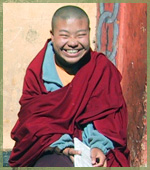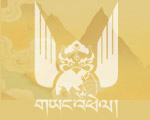 The
Royal Government of Bhutan remains the lead agent in the development
of the country, where a pragmatic approach is evidenced in the
nature of development policy. Policy interventions, essentially
paternalistic, can be split into development and regulatory
policy. Whereas development policy is predominantly focused
on the majority rural agrarian population and the development
of physical and institutional infrastructure, regulatory policy
is generally aimed at limiting the activities of the more modernized
urban and business communities. Regulatory policy styles may
be interpreted as either hard or soft, generally regarding urban
and rural populations respectively, and corresponding to the
state's different priorities and capabilities for policy intervention.
The role of the state has and is being redefined from that of
provider to that of enabler, thereby focusing on conditions
that mobilize the energies and imagination of the people. The
Royal Government of Bhutan remains the lead agent in the development
of the country, where a pragmatic approach is evidenced in the
nature of development policy. Policy interventions, essentially
paternalistic, can be split into development and regulatory
policy. Whereas development policy is predominantly focused
on the majority rural agrarian population and the development
of physical and institutional infrastructure, regulatory policy
is generally aimed at limiting the activities of the more modernized
urban and business communities. Regulatory policy styles may
be interpreted as either hard or soft, generally regarding urban
and rural populations respectively, and corresponding to the
state's different priorities and capabilities for policy intervention.
The role of the state has and is being redefined from that of
provider to that of enabler, thereby focusing on conditions
that mobilize the energies and imagination of the people.
Since 1961 government has directed the development process
through a series of Five-Year Plans. The first three Five-Year
Plans (1961/2-1975/6) placed an emphasis on the development
of basic physical infrastructure, with other significant areas
being social services (notably education and health facilities)
and agricultural inputs. In the Fourth and Fifth Plans (1976/77-1986/7)
the distribution of outlay became more balanced, with a greater
emphasis on the development of industry, and the objectives
of national and regional self-reliance and decentralization.
The Sixth Plan (1987-92) introduced the objective of the preservation
of national identity, and the Seventh Plan (1992-97) that
of sustainability. The broad objectives of the Eighth Plan
(1997-2002) are as follows: (a) Self-reliance; (b) Sustainability;
(c) Preservation and promotion of cultural and traditional
values; (d) National security; (e) Regionally balanced development;
(f) Improving quality of life; (g) Institutional strengthening
and human resource development; (h) Decentralization and community
participation; (i) Privatization and private sector development.
Guiding principles for the future development of the nation
are complemented by a single unifying concept, the distinctly
Bhutanese notion of Maximizing Gross National Happiness. Although
first propounded by His Majesty the King in the late 1980s,
some of the principles embodied have guided the nation's evolution
over a much longer period, being rooted in the cultural heritage.
In Bhutanese culture the original definition of development
was based on the acquisition of knowledge. In a similar vein
the process of communal enrichment was based on a dynamic
in which those who possessed superior knowledge imparted that
knowledge to others. In the Buddhist religion this concept
of personal development was further refined to entail overcoming
the delusions arising from ignorance, aggression, and the
desire for consumption and acquisition.
The concept of Gross National Happiness was articulated to
indicate that development has many more dimensions than those
associated with Gross National Product, and that it should
be understood as a process that seeks to maximize happiness
rather than economic growth. Although economic growth remains
a precondition for the achievement of self-reliance, improved
standards of living and enlarged opportunities and choices,
Gross Domestic Product is perceived as insensitive to issues
such as personal disenchantment, social problems and natural
resource depletion. For Gross National Happiness the individual
is placed at the center of all development efforts, recognizing
that people have material, spiritual and emotional needs.
It asserts that spiritual and emotional development cannot
and should not be defined exclusively in material terms.
The aim of Maximizing Gross National Happiness, as a particularistic
Bhutanese basis for development planning, promotes several
important values. However, to provide direction to the Kingdom's
long-term development, the concept must be translated into
tangible goals. Towards this end, five themes are identified,
providing powerful objectives for steering the process of
change: human development, the promotion and preservation
of culture and heritage, balanced and equitable socio-economic
development, good governance, and environmentally sustainable
development. Human development aims at maximizing the happiness
of the population and enabling the fulfillment of its innate
potential. Concerted efforts to produce sustainable improvements
in the standard of living, quality of life, choices and opportunities
need to take place within a framework of traditional values
and ethics. The dynamic articulation of an unambiguous cultural
imperative fulfills as important role as a source of values
and inspiration for a society in transformation, meeting spiritual
and emotional needs, maintaining a distinct identity, and
cushioning the people from some of the negative impacts of
modernization.
The benefits of development should be shared equitably between
different income groups, genders and regions, in ways that
promote social harmony, stability and unity, and contribute
to the maintenance of a just and compassionate society. The
system of governance needs to be developed to reduce dependence
on others, to manage an increasingly complex process of development,
and to enlarge opportunities for people at all levels to participate
more fully and effectively in decisions that affect them.
Development choices must embody the principle of environmental
sustainability, protecting the biological productivity and
diversity of the natural environment in the interests of present
and future generations. The continuing challenge resides in
the articulation of an ongoing balance between material and
non-material components of development, incorporating new
ideas and principles where appropriate, to give still firmer
substantive content to the concept.
|



